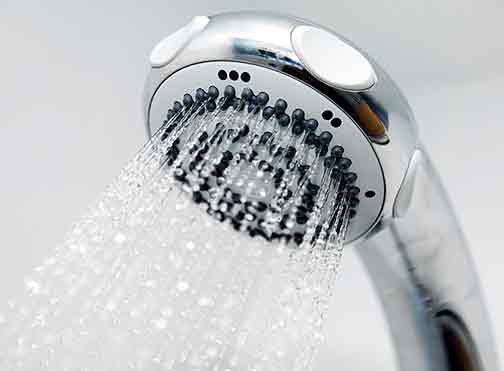Water costs for residents of Chicago used to be very affordable as the city had one of the lowest water rates amongst America’s major cities. That was until previous administrations – Mayor Rahm Emanuel’s administration specifically – thought it necessary to raise water rates and fund improvements to the city’s waterworks.
But even though rates increased substantially, the cost per gallon of water in Chicago still compares very favorably with what residents of other cities pay. Most of the city’s residents have not had trouble paying their water bills, at least not until recently. A lot has happened since the appearance of COVID-19 that has impacted Chicago negatively.
Soaring unemployment rates mean that formerly affordable things to citizens are now out of reach. Many Chicagoans struggle to keep up with their water bill payments, and water is not something you can expect people to forgo. Access to sufficient potable water is a human right. There is a violation of that right if people cannot afford water.
The issues causing the current water affordability problem in Chicago are as follows:
- The city’s aging water infrastructure requires steady funding for repairs, replacements, and upgrades. The bulk of this money comes from the pockets of the city’s resident.
- The fact that most people’s income is not growing at the same rate as water costs are rising. The effect is lower-income families now face significant struggles paying their water bills; many have backlogs running into thousands of dollars.
- The pandemic worsened an already bad situation. Before this, incomes were insufficient, but now several people don’t even have an income anymore. That is due to the lockdowns and social distancing rules that have forced many businesses to shut down.
What is the city doing about the issue?
How the city is tackling the issue
The city is taking steps to handle the problem through a “Water for All” ordinance. The regulation will let some city residents pay a discounted water bill or give others free water. That is just one of the steps the city is taking. Here are some of the details of the City Council’s effort to make water more accessible for Chicagoans.
Moratorium on shut-offs
The city has temporarily suspended water shut-offs due to non-payment of water bills. This program was initiated last year when Mayor Lori Lightfoot took office. The community now has a team to restart water service to homeowners whose water was shut-off before shut-offs were suspended.
The Utility Billing Relief Program (UBR)
This program will subsidize water bill payments by as much as 75% for some homeowners and make water free for some other residents. There are about 168,000 homeowners with past due payments that may qualify for the UBR program. But to qualify, applicants have to earn 200% less than the federal poverty level. Homeowners who participate will be required to pay their monthly bills for one year, while the old charge is set aside. If they complete the one-year payments, the backlogs will be waived. This program is for homeowners who own single-family homes and duplexes.
Senior citizen sewer exemption
For elderly homeowners not eligible for the UBR program, they can apply for the city’s Senior Citizen Sewer Exemption program. Since the sewer bill is 100% the cost of what people pay for water bills, this program can help homeowners reduce their water bills by 50%.
Relieving tenants of their water bill burdens
The city is also looking into protecting renters from landlords who pass the water bill to their tenants. As Bigham & Associates LLC explains, the logic behind this move is that water bills are sent to buildings and not to renters.
Others
Financial help is also expected from the state and federal government, particularly for the city’s water systems. These will help the city improve its waterworks without charging the consumers for it.
The city of Chicago is taking steps to make sure water does not stop flowing in the homes of Chicagoans. But you can also take steps to reduce your water usage and make it easier to pay your water bills. Simple things you can do that don’t involve spending money include:
- Taking shorter showers; every minute in the shower uses 5-10 gallons of water.
- Not using the toilet for dumping tissue and other things. Every time you flush the toilet, you use 5-7 gallons.
- Take a bath instead of a shower. Baths use less water than the shortest shower.
- Turn off the water while shaving or brushing your teeth.
- Only use the automatic dishwasher when you have a full load; your dishwasher uses 30-45 gallons of water per cycle.
- Fill a plastic bottle with sand, pebble, and stone. Put it inside the tank. This step will save you more than 5 gallons of water daily without affecting the toilet’s efficiency.
You should also consider replacing some of the bathroom features to a more eco-friendly ones, which help with water saving.
